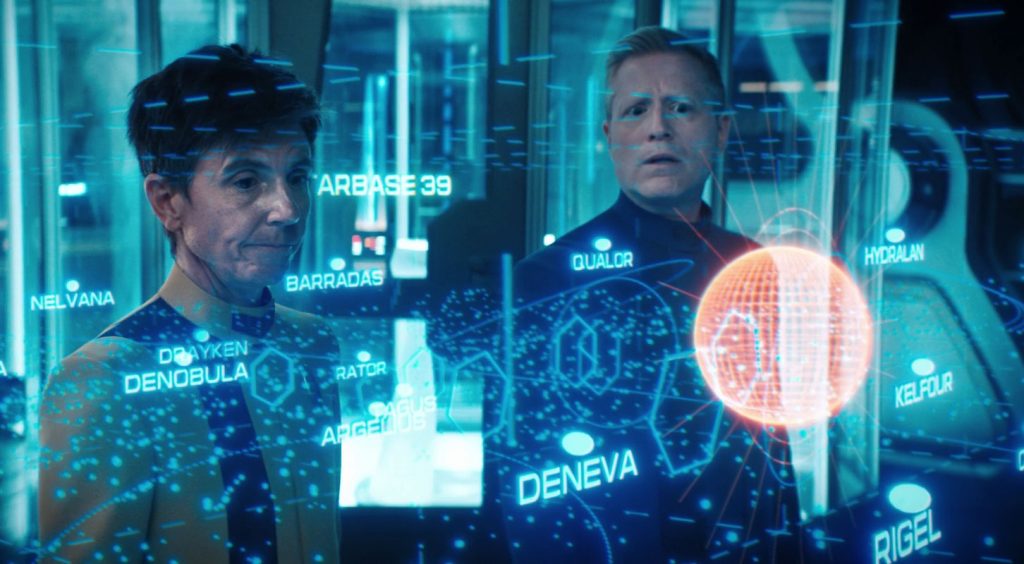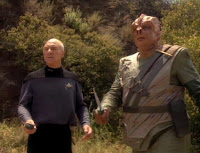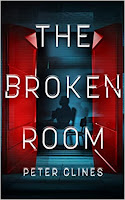So here’s an easy thing to look for. I used to do this… let’s say a fair amount in my early writing. I see it happen in other’s people’s writing—especially first big projects. And I see it happen all the time in low-budget B-movies that didn’t bother with, well, a script. It’s really common when actors start to ad-lib scenes. Enough so that I feel very comfortable saying it’s really common.
What is it? Well, wouldn’t you like to know. No, I don’t have to tell you. BECAUSE I’M IN CHARGE, THAT’S WHY! WELL THEN GO START YOUR OWN WRITING BLOG!!!
Okay, let’s just pause for a moment, all take a breath, and try this again…
NO, YOU DIE! YOU GO TO HELL AND YOU DIE!!!
Anyway…
If you spend any amount of time online, arguments almost feel like the default form of human interaction. Because let’s be honest, there are some folks out there who just want to argue. About anything. You like kittens? Of course you would. That’s exactly the kind of thing someone like you would like!
As we’ve all learned, these sort of arguments rarely go anywhere. The people starting it, well… they’re not really interested in opposing views or hearing a counter-argument. So these discussions often amount to a lot of yelling that goes nowhere. Everyone ends up more or less right where they started, position-wise. Nobody’s been convinced to hate kittens or stop carrying their AR-15 to the elementary school bus stop. So in retrospect… they’re kind of a waste of time.
When we’re writing, I think arguments are an easy form of dialogue. Lots of folks think shouting means conflict and tension and drama, so if all my characters are shouting at each other, well, my story must be filled with conflict and tension and drama. Right? Plus, wow, that just filled three pages. It must’ve been good.
So characters argue about a lot of really stupid stuff. Like, anything at anytime can set off an argument. And these irrational arguments go on and on, no matter what else is going on. There can be a kaiju stomping toward our car but the five of us will sit and argue for ten minutes about driving away vs getting out of the car and running away vs just sitting here because maybe we’re just imagining the kaiju, did you think of that?
No? Well that’s why I’M IN CHARGE!
Anyway…
I think a lot of the time when characters are arguing in a book or movie, it’s the writer trying to create a false sense of tension. Or just padding. Or both. Maybe consciously, maybe unconsciously.
Please note I said a lot of the time. Not all. This isn’t a blanket rule, and there are some fantastic examples out there of characters who have heated discussions in books and movies. Or who just, y’know, argue all the time. Because in any good story there’s going to be actual conflict and there are going to be things people have real, justified arguments about.

And, sometimes arguing can be funny. It can actually lighten the mood to see people start bickering over something really silly and irrelevant. Especially when we see the context of what they’re arguing about and where/ when they’ve decided to argue about it.
But all of these arguments have a point to them. They’re either advancing the plot somehow, or advancing the story of one (or both) of these characters. In some cases, they might even be representative of some other intense interaction…
As of late, if I find my dialogue sliding into combative arguments, I try to step back. Look at the scene and the story as a whole, not just my brilliant and snarky dialogue exchanges. What else is going on right now? What’s the actual point of this moment? Does it make sense that these people would be arguing about this? Right now? Is this really driving anything forward?
Or are my characters just arguing to make it seem like there’s some sort of conflict going on? Is it a bunch of false drama that doesn’t really make sense when you consider the characters and what’s happening to them at the moment? Am I just boosting my page count?
So if you’ve got a two and a half page argument… maybe look at it again. See if it actually makes sense. And if it’s really doing anything for the story as a whole.
BECAUSE I SAID SO, THAT’S WHY!!!
Next time… well, next week’s my birthday, so I think I’d like to put on my old white beard and blather on about some life-experience wisdom type stuff. As I have in the past.
Until then, go write.






